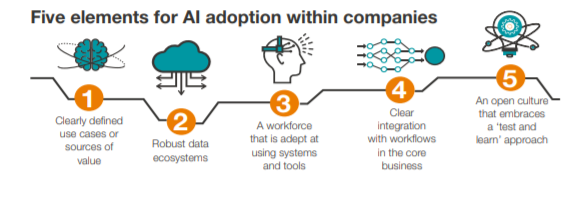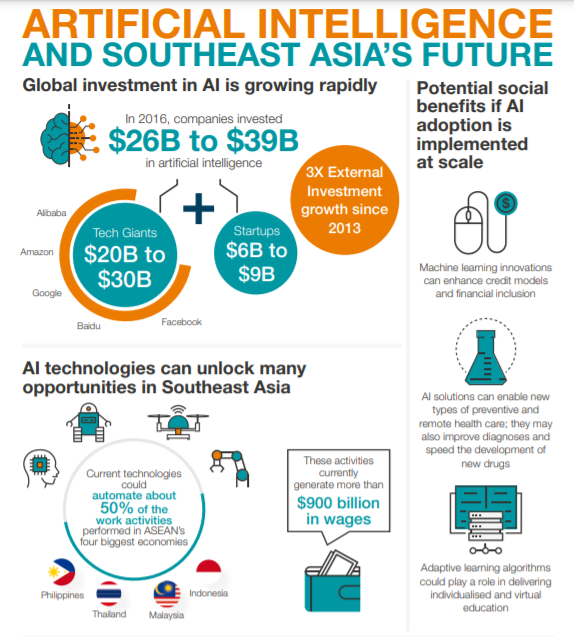
Advances in data collection and aggregation, algorithms, and computer processing power have enabled scientists and engineers to make great strides in developing AI. Adoption is growing around the world in sectors such as finance, health care, and transport. The two major global hubs of AI development are the United States and China. Singapore has made the greatest advances, but there are also promising early signs in places like Malaysia and Vietnam.
Currently demonstrated technologies have the potential to automate roughly half of the work performed in ASEAN’s four biggest economies. As more work requires interacting with machines, the region will need to develop new types of workforce skills. Machine learning can enhance credit models and financial inclusion, for example. If harnessed in the right ways, AI technologies can contribute to positive social outcomes.
ASEAN will need to build foundational digital infrastructure and data systems to realize these types of opportunities. Most of the companies across ASEAN will also need to make fundamental changes in management culture. We see three major priorities: establishing a regional policy framework to support AI development and adoption; developing AI talent and encouraging usage at the local level; and focusing public debate.

Thailand2